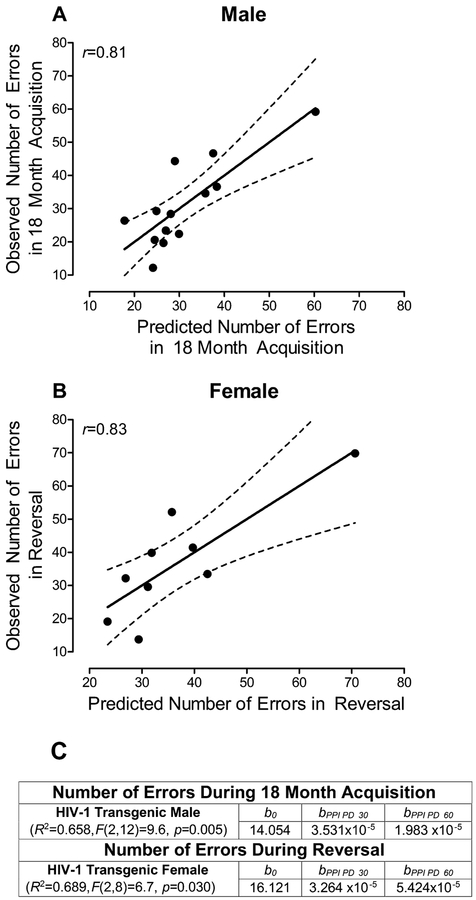FIGURE 2.
The utility of early (i.e., Postnatal Day (PD) 30 and PD 60)) prepulse inhibition (PPI) assessments to accurately predict later (i.e., PD 540) neurocognitive impairment in higher order cognitive processes (i.e., sustained attention, flexibility, and inhibition) was assessed in HIV-1 Tg animals. Regression assessments were conducted independently by sex due to sex-dependent expression of the HIV-1 transgene at an advanced age. Specifically, male HIV-1 Tg animals exhibited greater impairments in sustained attention (i.e., 18 Month Acquisition), while female HIV-1 Tg animals displayed greater impairments in flexibility and inhibition (i.e., Reversal; McLaurin et al., 2018c). A trimmed means regression analysis was conducted. A: For HIV-1 Tg males, regressing auditory PPI at PD 30 and PD 60 on the number of errors in 18 month acquisition (i.e., a challenging signal detection task tapping sustained attention) revealed a regression coefficient (r) of 0.81. Therefore, in male HIV-1 Tg animals, auditory PPI explained 65.8% of the variance in the number of errors in 18 months acquisition. B: For HIV-1 Tg females, regressing auditory PPI at PD 30 and PD 60 on the number of errors in an operant reversal task at 18 months of age, tapping flexibility and attention, exhibited a regression coefficient (r) of 0.83. Thus, in female HIV-1 Tg animals, auditory PPI explained 68.9% of the variance in the number of errors in a reversal task, tapping flexibility and inhibition, at 18 months of age. Reanalysis of data presented in McLaurin et al., 2018c. C: Regression Analysis.

